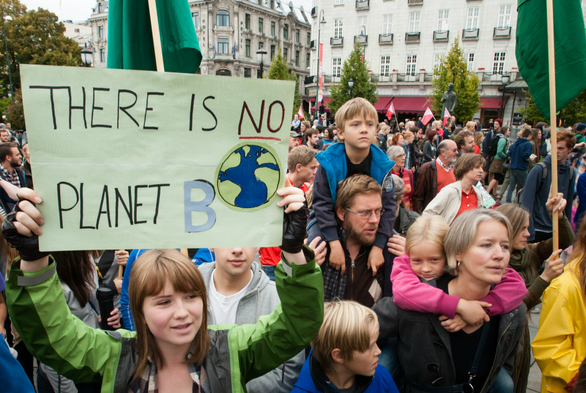Staff and students from the University of Liverpool are being encouraged to take 30 minutes out of their working day to support today’s global day of action on climate change.
In a joint statement, the University, campus unions and Guild of Students said, “We share deep concerns about the climate crisis and support the call for sustained and urgent action.
“The University is joining campus unions and the Guild of Students in encouraging staff and students to observe the 30-minute workday solidarity stoppage to coincide with the global school student strike on the 20th September.
“Together, we commit to ongoing dialogue and action to address the climate crisis.”
From joining the climate strike at St George’s Hall to suggesting how sustainability could be improved on campus or learning more about our climate change research there are plenty of ways to get involved.
Join the Liverpool Climate Strike
Staff and students who wish to take part in UCU’s ’30-minute solidarity climate stoppage’ can meet outside the Victoria Gallery and Museum at 12pm to walk down to St George’s Hall and join city activities.
Give us your feedback
Staff and students can also submit suggestions here to the University and the Liverpool Guild of Students about how to improve the sustainability of our operations.
Learn about our research
The university conducts valuable research into a wide range of issues linked to climate change. From ocean science and wildlife conservation to renewable energy and extreme weather, we’ve highlighted just some examples below.
Carbon emissions
Professor Ric Williams and Dr Andy Heath are working on carbon emissions research and have produced this video explainer.
The University’s Stephenson Institute for Renewable Energy is part of a new research consortium that has been awarded £11.2 million by the Faraday Institution to explore and develop next-generation lithium batteries to be used in electric vehicles.
Meanwhile, Dr Stephen Finnegan investigates the whole life sustainability and financial aspects of sustainable buildings. Earlier this year he wrote a piece explaining how blockchain and carbon offsetting can help cities reduce emissions.
Coasts and marine life
Dr Leonie Robinson and Dr Fiona Culhane are conducting research into the impact of human activities such as fossil fuel extraction and commercial fishing on marine ecosystems.
Meanwhile, Professor Andy Plater is working on strategies to tackle coastal vulnerability due to sea-level rises.
Dr Cristina Garcia Perez has been researching the relationship between rising global temperatures and the disruption in mating patterns of aquatic populations.
Microbes and disease
Professor Matthew Baylis has helped highlight the vital role microbes play in supporting the health of humanity and in regulating the rate of climate change.
Dr Cyril Caminade studies the impact of climate variability and climate change on the risk posed by several key vector-borne diseases, such as malaria, dengue and Zika,
Conservation
Dr Tom Price has helped identify the impact of extreme temperature fluctuations on fertility in animals, plants and fungi – helping to predict species at risk due to climate change.
Meanwhile Dr Jenny Hodgson’s research has shown that, when it comes to wildlife conservation efforts, urban environments could be far more helpful than we think.
Extreme weather
Professor Georgina Endfield and her team have tracked examples of extreme weather events throughout history. The construction of these ‘climatic histories’ will provide a better understanding of the nature of the events that might take place in the future.
Follow us on Instagram @livuni for all the latest coverage from today’s global climate strike activities in Liverpool.
